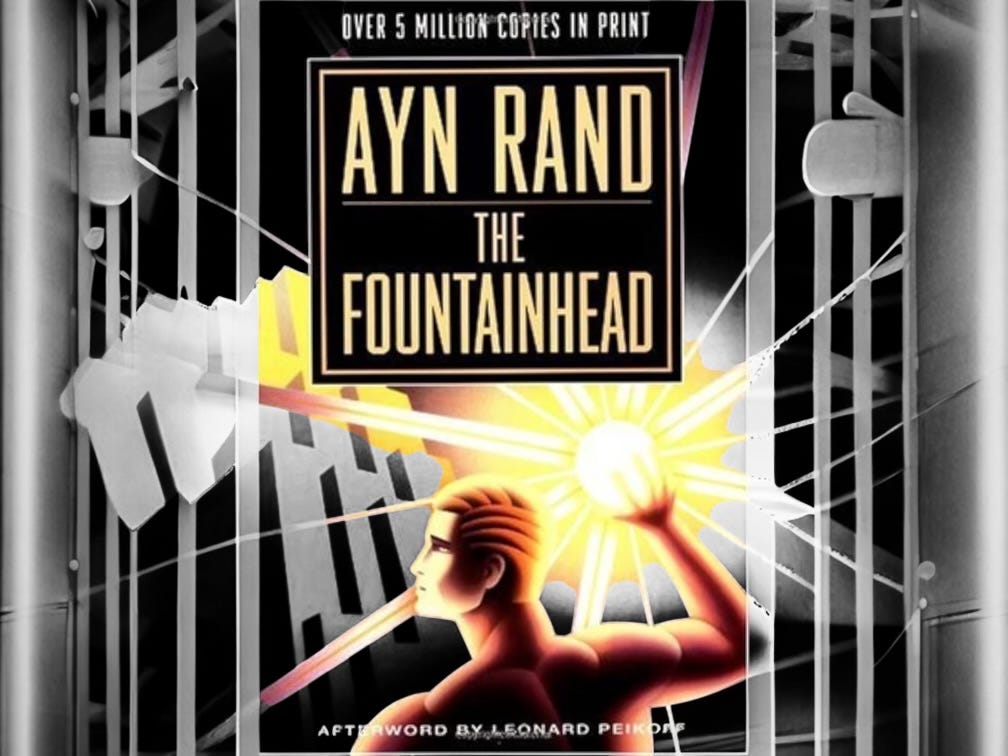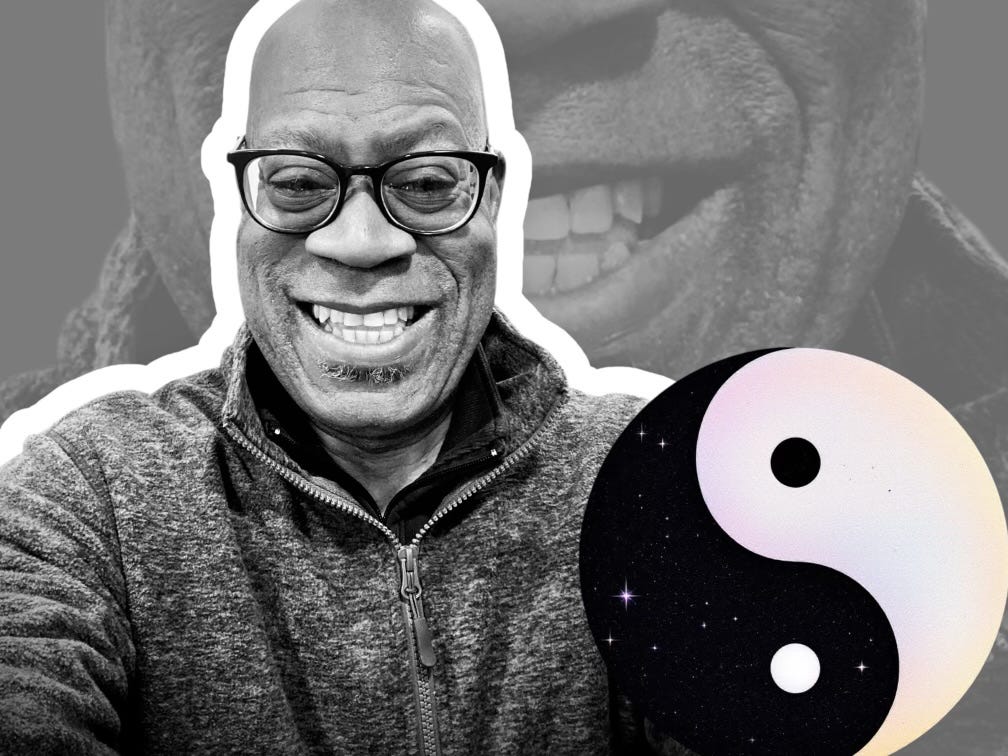In a world where the strings of power are being pulled behind the curtain, we, the masses, are often reduced to marionettes, dancing not to our own rhythm but to the carefully orchestrated tune of the power elite.
Whether it’s governments, corporations, or other self-proclaimed custodians of the public good, we are constantly nudged, manipulated, and shamed into surrendering our individuality for the sake of a so-called “greater good.”
This phenomenon isn’t new. Lao Tzu, Ayn Rand, and Sun Tzu, though centuries apart, offer timeless wisdom on resisting such control, reclaiming our sovereignty, and embracing self-reliance.
The Rebellion of Lao Tzu
Lao Tzu, the enigmatic sage of the Tao Te Ching, took a decidedly rebellious stance against outer power and control. His philosophy doesn’t advocate for grand revolutions or bloody uprisings but for an internal revolution—a quiet refusal to be ruled by external forces.
In Chapter 57 of the Tao Te Ching, Lao Tzu famously wrote: “The more laws and restrictions there are, the poorer the people become. The more rules and regulations, the more thieves and robbers.” In other words, he saw a direct link between excessive governance and the erosion of individual freedom and authenticity.
For Lao Tzu, the Tao—the Way—was about alignment with the natural order, a state of being that required no coercion or control. True power, he argued, comes not from dominating others but from mastering oneself.
This is why Lao Tzu’s philosophy is inherently contrarian. It challenges the idea that centralized power, laws, and institutions are necessary for human flourishing. Instead, he points us toward self-reliance and simplicity, advocating for a return to our true nature rather than blind obedience to the constructs of society.
The Disempowered Masses
Today, the masses often find themselves disempowered—eunuchs in the theater of life. From the endless barrage of fear-based media to the narrative that “sacrificing for the collective” is the ultimate virtue, we are subtly programmed to believe that the individual is insignificant.
Personal dreams, ambitions, and even dissenting voices are dismissed as selfish or dangerous. The more we internalize this propaganda, the more we abdicate our autonomy and agency.
Consider the modern obsession with public policies that supposedly serve the “greater good.” How often do these initiatives end up enriching the power elite while leaving the common people poorer, more divided, and more dependent?
The illusion of benevolence masks the insidious reality: these custodians of the public interest are less concerned with the collective good than with consolidating their own power.
Ayn Rand’s Anthem of Individualism
In Ayn Rand’s The Fountainhead, we find an anthem to the individual and a scathing critique of collectivism. Howard Roark, the novel’s protagonist, embodies the defiance of external control. He refuses to compromise his vision, even when the entire world seems to conspire against him.
Rand’s philosophy, Objectivism, champions the individual as the ultimate source of creativity, innovation, and moral worth. In Rand’s view, any attempt to subjugate the individual to the will of the collective is a fundamental violation of human dignity.
Rand’s work adds a provocative dimension to this discussion. She reminds us that conformity and mediocrity are the inevitable results of placing collective demands above individual creativity.
When the masses are taught to prioritize the opinions and needs of others over their own truths, they become easy to manipulate. Roark’s refusal to bend to societal pressures is not just a fictional rebellion but a call to arms for anyone who values authenticity and freedom.
The Art of War and the Subtle Game of Control
While Lao Tzu and Rand offer insights into resisting control, Sun Tzu’s The Art of War provides a strategic lens to understand how control is wielded. Sun Tzu teaches that the best victories are won without battle, and the most effective form of control is subtle and psychological. The power elite understand this principle well. They don’t need to physically chain us when they can manipulate our minds.
Control today is less about overt oppression and more about narrative management. By controlling the stories we tell ourselves—about our role in society, about what’s possible, and about who holds the moral high ground—the elite ensure that rebellion never takes root.
Sun Tzu’s advice to “know your enemy and know yourself” is crucial here. To resist manipulation, we must first understand the tactics used against us. We must also know ourselves deeply—our values, desires, and truths—so we cannot be swayed by shame, fear, or false promises.
A Taoist-Randian-Sun Tzu Fusion
Imagine a synthesis of these three philosophies. Lao Tzu provides the spiritual foundation: an embrace of simplicity and alignment with the natural order. Rand offers the intellectual backbone: a refusal to compromise one’s integrity for the sake of conformity. And Sun Tzu delivers the tactical acumen: an understanding of how power operates and how to resist it effectively.
Together, they paint a picture of what it means to live as a free and sovereign individual in a world bent on control. They remind us that resistance doesn’t always look like revolution; it can be as subtle as refusing to buy into the narrative that your worth is determined by your usefulness to the collective. It can be as bold as living authentically in a society that rewards mediocrity.
Reclaiming the Puppet Strings
To reclaim our puppet strings, we must first recognize that they exist. We must question the narratives that shame us into compliance and challenge the systems that benefit from our disempowerment.
This doesn’t mean rejecting all forms of collective action or community but understanding that true community arises from empowered individuals, not from forced conformity.
Lao Tzu reminds us to flow like water, avoiding the traps of rigidity and dogma. Rand challenges us to stand firm in our convictions, no matter the cost. Sun Tzu urges us to be strategic, to see the battlefield clearly, and to act with precision. These lessons are not relics of the past; they are tools for navigating the present and shaping the future.
In the end, the greatest rebellion is not the overthrow of external power but the reclamation of internal power. To live authentically, to think independently, and to act courageously is to break free from the strings of control and become the master of your own destiny. That is the Way—the Tao—of true freedom.
We are living in unprecedented paradoxical, mysterious, and uncertain times. So if you find my nomadic wisdom valuable in helping to set a grounding tone for your day then please consider joining as a paid member supporter.
Or feel free to tip me some dirty chai latte love here if you feel so inclined.
Every bit counts as I strive to deliver high quality feature articles into your inbox on a daily basis. Never any paywalls, just my Taoist raw thoughts which are open to everyone on what it means to be human.
Your contributions are appreciated in support of my work and calling.
Much Love,
Diamond- Michael Scott — aka The Chocolate Taoist







"Know your enemy.". Great post. Nice blending of important concepts by different teachers. Thanks